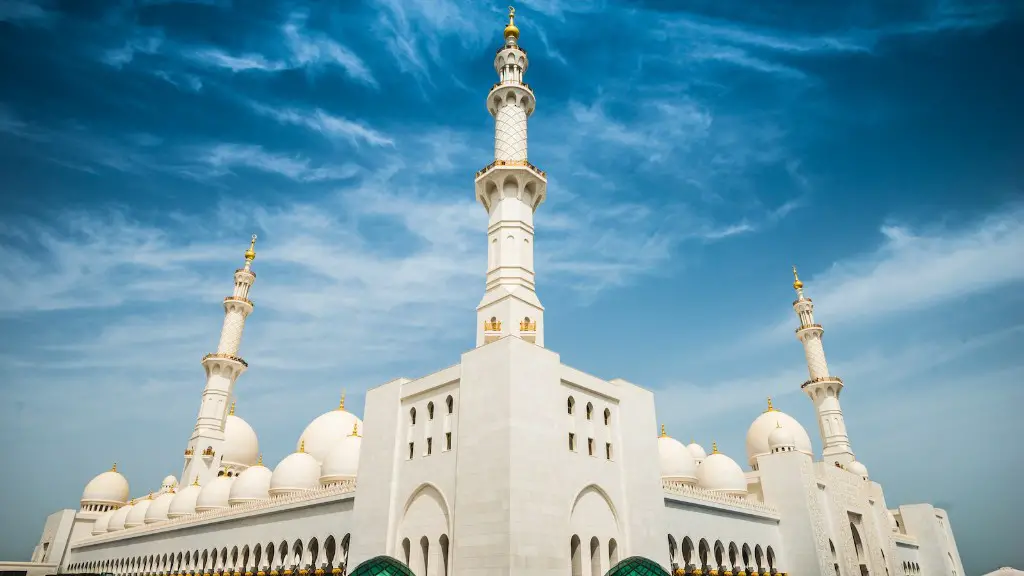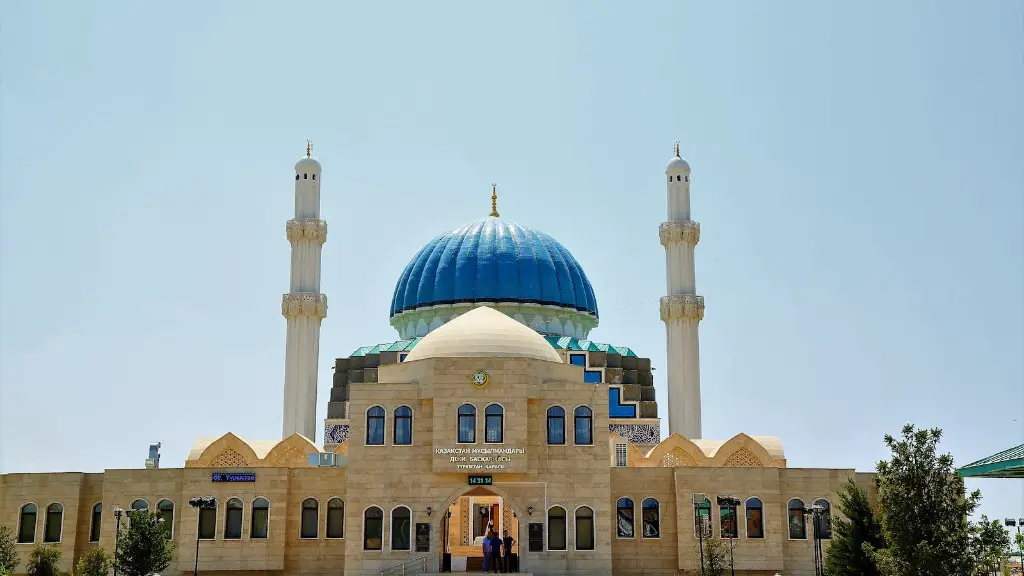Over the centuries, Islam has had a profound affect on Western culture, art, literature and philosophy. This can be seen in the works of great thinkers like Dante, Voltaire and Goethe who were all influenced by Islamic ideas and culture. In more recent times, Islamic influences can be seen in the music of Mozart and Beethoven, and in the art of Renoir and Cézanne. Even today, Western culture is still being influenced by Islam in many ways.
Islam has had a significant influence on Western culture, especially on arts and letters. For example, the Muslim invasion of Spain in the 8th century led to a period of intense cultural exchange between Muslims and Christians. Muslim architects and engineers introduced the arch and the dome to Western Europe, and Islamic scholars helped to revive the study of Greek and Roman classical texts. In addition, the Crusades, which were a series of wars waged by European Christians to regain control of the Holy Land from the Muslims, also had an impact on Western culture. The Crusades increased contact between Europeans and Muslims, and they also introduced Europeans to new technologies, foods, and intellectual ideas from the Islamic world.
What was a major contribution of Islamic culture to Western civilization?
During the Islamic Golden Age, scientists in the Muslim world made significant advances in a number of fields, including mathematics, astronomy, and chemistry. These advances were later transmitted to the West, where they helped to lay the foundation for the Scientific Revolution.
It is interesting to note that Muslim scholars were responsible for laying the foundation for many disciplines that are now considered essential parts of modern life. Subjects like mathematics, physics, chemistry, geography, astronomy, agriculture and medicine all have their roots in the work of Muslim scholars. This demonstrates the significant contribution that Muslims have made to the development of human civilization.
What cultures were influenced by Islam
The Islamic empires have expanded rapidly, resulting in the spread of Muslim culture to many different parts of the world. This has led to the assimilation of many different cultures into the Islamic world, resulting in a rich and diverse culture.
Islam is a religion that was born in the heartland of Western Civilization, the Middle East. Islam is a religion of precisely the same religious tradition as Judaism and Christianity. In Islam, the prophets that came before Muhammad, from Abraham and Moses to Jesus, are venerated as genuine messengers of God.
How did Islam impact Western civilization in the Middle Ages?
Some of the most significant Islamic contributions to Medieval Europe were in the areas of art, architecture, medicine, agriculture, music, language, education, law, and technology. From the 11th to the 13th century, Europe absorbed knowledge from the Islamic civilization, which had a major impact on the development of the continent.
It is often said that the European Renaissance would not have happened in the way that it did if Muslim scholars had not translated classic Greek texts. This is because Muslims made major advancements in astronomy, zoology, geography, arithmetic, navigation, art, architecture, and technology. Without these translations, European scholars would not have had access to the important knowledge contained in these texts.
How does Islam influence society?
Islam introduced a social revolution in the context in which it was first revealed. Collective morality is expressed in the Qur’an in such terms as equality, justice, fairness, brotherhood, mercy, compassion, solidarity, and freedom of choice. Islam teaches that all human beings are equal before God and that we are all responsible for our own actions. This message was revolutionary in a world where people were often treated as second-class citizens based on their gender, race, or social status. Islam also introduced the concept of collective responsibility, which teaches us that we are all responsible for the wellbeing of our community. This is why Muslims are encouraged to help the poor and needy, and to work for the common good.
The alphabet is one of the greatest inventions of all time. It has allowed us to communicate with each other clearly and concisely, and has been an essential tool in the development of human civilization. The Arabs were the first to develop a phonetic alphabet, and their contribution to human civilization is immeasurable. We are indebted to them for their insight and scientific perseverance, and their contribution to the development of the human race is immense.
What did the Islamic contribute to the modern world
The lute and the rahab are two instruments that arrived in Europe from the Middle East. The modern musical scales are also said to derive from the Arabic alphabet. According to Hassani, the Prophet Mohammed popularized the use of the first toothbrush in around 600.
As a result of the spread of Islam, large empires rose in areas that were once characterized by small kingdoms. This was due to the fact that Islam facilitated the rise of large empires. Another effect of the spread of Islam was an increase in trade.
How did Islam spread to other cultures?
Islam spread through military conquest, trade, pilgrimage, and missionaries Arab Muslim forces conquered vast territories and built imperial structures over time. Islam was also spread through the establishment of trade routes and the pilgrimage routes to Mecca. Arab Muslim missionaries also played a role in the spread of Islam.
There is no doubt that Islam is one of the fastest-growing religions in the world. It is estimated that there are over 1.6 billion Muslims in the world, which is about 23% of the world’s population. Islam made its way to Europe during the 11th to 14th century and had a profound impact on the continent. Religion made a lot of contributions to Medieval Europe and the impact of Islam in Europe helped develop the art, architecture, medicine, agriculture, music, law, and technology of Europe.
What are examples of ways in which Western cultures have benefited from Islamic culture
The Arabic language has had a profound impact on the West, particularly during the Crusades. Many words in the English language are derived from Arabic, including algebra, alchemy, artichoke, alcohol, and apricot. Even more fundamental are the Indo-Arabic numerals (0-9), which replaced Roman numerals during the same period and revolutionized our capacity to engage in science and trade.
The Western secular model privileges a rational, reasoning mind in the pursuit of individual and collective fulfillment; and Islam’s model emphasizes justice and tradition as the basis of a legitimate community and family life. Muslims are critical of Western media because of their invasiveness. The Western media is often seen as creating a culture of celebrity and consumerism that is at odds with traditional Islamic values. Additionally, the Western media is often seen as being intrusive and disrespectful of privacy, which is another value that is important to Muslims.
How did Islam spread to western Asia?
The spread of Islam began in the 7th century CE, just a few years after the death of the Prophet Muhammad. It quickly spread throughout the Arabian Peninsula and into the neighboring regions of North Africa and Syriac. From there, it continued to expand outward, reaching as far as Spain and Central Asia.
During the early centuries of Islam’s spread, Arab and Persian traders were very successful in expanding the religion. This was due in part to their trade practices. They would often set up shop in a new city and offer their goods at very reasonable prices. This would attract customers, many of whom would then convert to Islam.
The religion also spread through intermarriage. Arab and Persian men often married into the families of the local elite. This not only increased the number of Muslims, but also led to the introduction of Islamic values and practices into non-Muslim households.
By the 1500s, Islam had become a global religion, with millions of followers in Africa, Asia, and Europe.
The Arabs conquered Syria, Palestine, and Egypt from the Byzantine empire, while Iraq and Iran, the heart of the Sasanian empire, succumbed to their forces. Here in these lands, Islam fostered the development of a religious, political, and cultural commonwealth and the creation of a global empire. Islam also spread to other parts of the world, such as Indonesia, Malaysia, and India.
Final Words
It is difficult to say how exactly Islam has influenced Western culture, as the two have been intertwined for centuries. It is safe to say that Islam has had a significant impact on the West, both historically and in the modern day.
Western culture has been greatly influenced by Islam, particularly in the areas of architecture, art, and science. Islamic culture has also had a significant impact on the Western world in terms of political and social developments.


